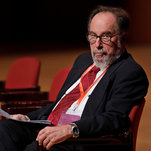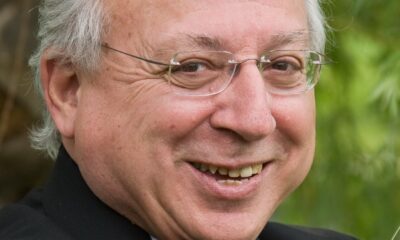Science
Renowned Molecular Biologist David Baltimore Passes Away at 87

David Baltimore, the acclaimed molecular biologist who won the Nobel Prize in Physiology or Medicine, has died at the age of 87. His passing marks the end of an era in biological research, as he was instrumental in reshaping our understanding of retroviruses and their role in diseases, notably H.I.V.
Born on March 7, 1934, in New York City, Baltimore began his groundbreaking work at an early age. At just 37, he made a significant discovery that challenged prevailing biological theories. His research unveiled how retroviruses operate, which has had profound implications for medicine and public health.
Legacy of Innovation and Impact
Throughout his illustrious career, Baltimore’s contributions to science went beyond his Nobel-winning research. He served as the president of the California Institute of Technology from 1997 to 2006 and later held a prominent position at Johns Hopkins University. His leadership and mentorship helped shape the next generation of scientists.
Baltimore’s work with retroviruses laid the groundwork for the development of therapies that have transformed the treatment of H.I.V./AIDS. His findings not only advanced scientific knowledge but also had a direct impact on health strategies worldwide. The implications of his research continue to resonate, particularly as global health systems confront viral outbreaks.
In addition to his Nobel Prize, awarded in 1975 alongside Howard Temin and Renato Dulbecco, Baltimore received numerous accolades throughout his career, underscoring his status as a leading figure in molecular biology. His research has been cited extensively, influencing countless studies and health policies.
Continuing Influence on Science
As news of his death circulated, tributes poured in from the scientific community and beyond. Colleagues praised Baltimore not only for his innovative research but also for his dedication to education and public service. His ability to communicate complex scientific concepts made him a respected voice in discussions about health and science policy.
Baltimore’s influence extended into the realm of public health advocacy. He was vocal about the necessity of scientific research funding, emphasizing its critical role in addressing global health challenges. His insights were particularly relevant during the ongoing fight against infectious diseases, reminding many of the importance of scientific rigor and dedication.
David Baltimore leaves behind a remarkable legacy characterized by profound scientific accomplishments. His contributions to molecular biology and public health will be remembered for generations to come, ensuring that his spirit of inquiry and innovation will continue to inspire future scientists.
-

 Science1 month ago
Science1 month agoNostradamus’ 2026 Predictions: Star Death and Dark Events Loom
-

 Technology2 months ago
Technology2 months agoOpenAI to Implement Age Verification for ChatGPT by December 2025
-

 Technology7 months ago
Technology7 months agoDiscover the Top 10 Calorie Counting Apps of 2025
-

 Health5 months ago
Health5 months agoBella Hadid Shares Health Update After Treatment for Lyme Disease
-

 Health5 months ago
Health5 months agoAnalysts Project Stronger Growth for Apple’s iPhone 17 Lineup
-

 Technology5 months ago
Technology5 months agoElectric Moto Influencer Surronster Arrested in Tijuana
-

 Education5 months ago
Education5 months agoHarvard Secures Court Victory Over Federal Funding Cuts
-

 Health5 months ago
Health5 months agoErin Bates Shares Recovery Update Following Sepsis Complications
-

 Technology7 months ago
Technology7 months agoMeta Initiates $60B AI Data Center Expansion, Starting in Ohio
-

 Technology6 months ago
Technology6 months agoDiscover How to Reverse Image Search Using ChatGPT Effortlessly
-

 Science4 months ago
Science4 months agoStarship V3 Set for 2026 Launch After Successful Final Test of Version 2
-

 Technology7 months ago
Technology7 months agoRecovering a Suspended TikTok Account: A Step-by-Step Guide




















